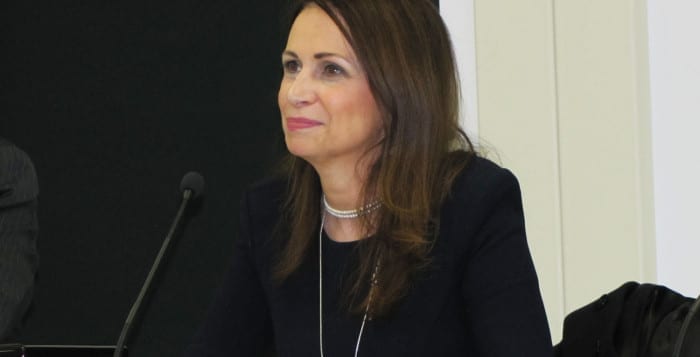State budget agreement brings aid to Three Village

As New York State lawmakers wrapped up the budget last week, they approved the end of the Gap Elimination Adjustment, a measure that took money from school aid packages to supplement the state budget.
To the relief of school districts across the state, remaining Gap Elimination Adjustment funds will be restored to 2016-17 budgets.
For Three Village, which has lost $34.7 million to the GEA since its inception in 2009-10, the district will receive a total aid package of $46.5 million — a $6.6 million bump from last year. This amount includes the $3.3 million in restored funds, as well as a $2.9 million increase in building aid for the 2014 bond.
The district’s cap on the increase to the tax levy is 2.41 percent and will not require Three Village to cut programs to meet the cap. Instead, said Jeff Carlson, assistant superintendent for business services, the district will restore a number of positions.
Speaking at last week’s school board meeting, Carlson said that at the secondary level, the district would bring back assistant coaches for junior varsity football and lacrosse, as well as for winter and spring track. These positions will enhance safety, supervision and instruction, he said.
At an earlier meeting, Superintendent Cheryl Pedisich said administrators would reassign 3.0 full-time equivalent (FTE) teaching positions to academic intervention services (AIS) at the elementary level and 1.6 FTEs at the secondary level to rebuild Ward Melville’s business department. There will also be a .4 FTE increase for American Sign Language.
The board will adopt the budget for the upcoming school year at its April 13 meeting. The public vote will be on May 17.
Also on the May ballot is a separate transportation proposition to eliminate minimum distance requirements for busing. The measure would allow the district to provide busing for all students.
Currently, all elementary students are bused. Junior high students must live at least a mile away from school and high schoolers a mile and a half away to get transportation. School administrators believe that offering transportation to all students will address safety concerns about narrow, winding streets without sidewalks and crossing busy roads like Nicolls Road.
If the proposition passes, it would cost $160,000 to add two buses. The addition of the buses would generate $70,000 in transportation aid from the state, Carlson said.
Taxpayers will also elect two trustees to the school board on May 17. Following former board member Susanne Mendelson’s resignation last month, the board decided to keep the seat open until the May 17 vote. Board president Bill Connors said the person with the highest votes would finish out Mendelson’s term, which ends June 30.
In other financial news, district officials finalized a five-year contract with the Three Village Teachers Association. There will be no salary increase for the first year, 2016-2017, followed by a 1 percent raise each year after, as well as a 2.5 percent step increase for longevity for up to 30 years, Carlson said.
Department updates
The chairs of the foreign language departments at the three secondary schools gave an overview of the departments’ offerings, which now include American Sign Language in the ninth grade. The district also offers French, Italian and Spanish, beginning in seventh grade and continuing to the Advanced Placement level.
The district hopes to add “one of the less commonly taught languages such as Arabic, Mandarin Chinese, Farsi or Japanese” in the future, the administrators said.
Social workers and school psychologists also outlined their roles within the school community. Each school has at least one full-time psychologist and a social worker, they said. Dawn Mason, executive director of pupil personnel services, said district psychologists “partner with families and administrators and teachers to create safe, healthy, learning environments.”






